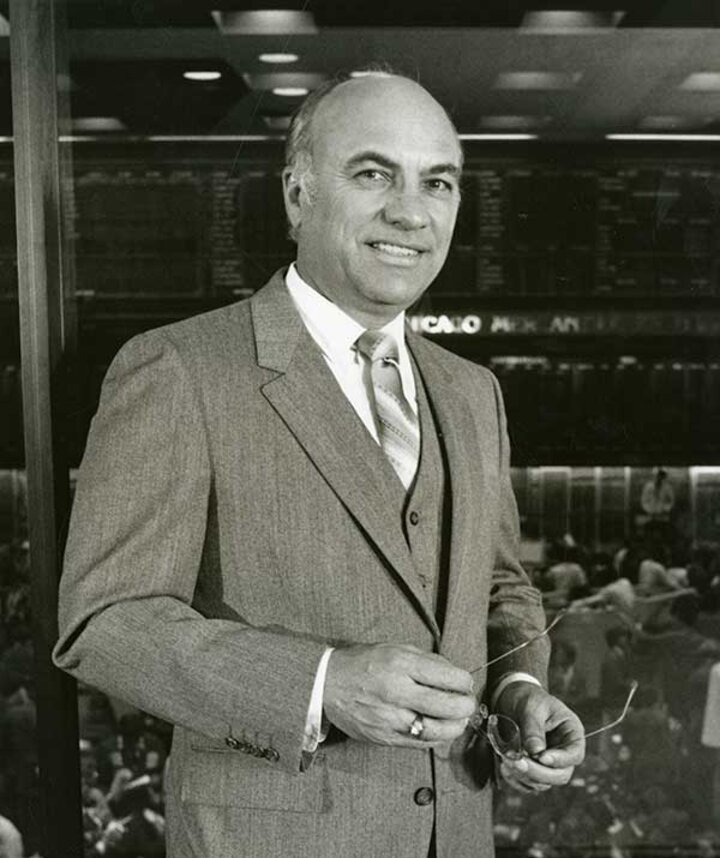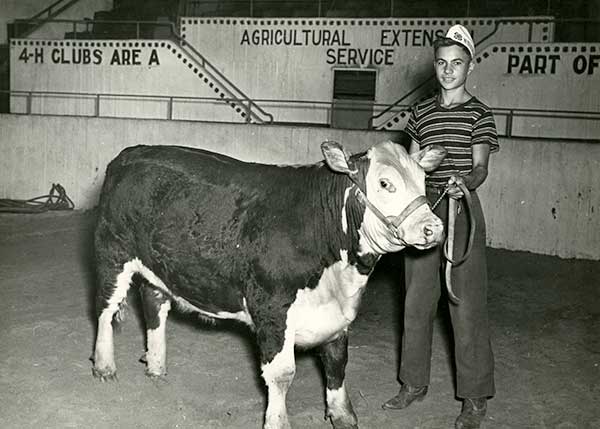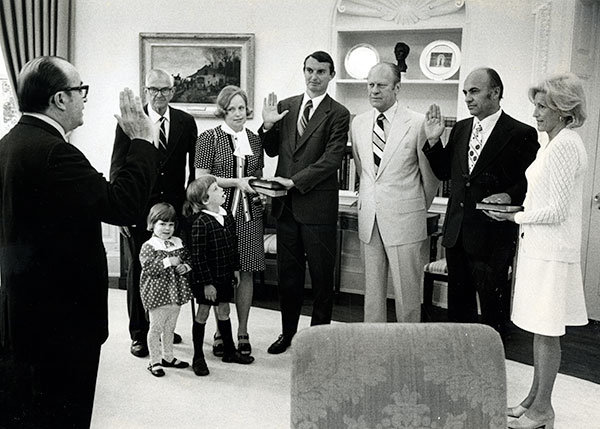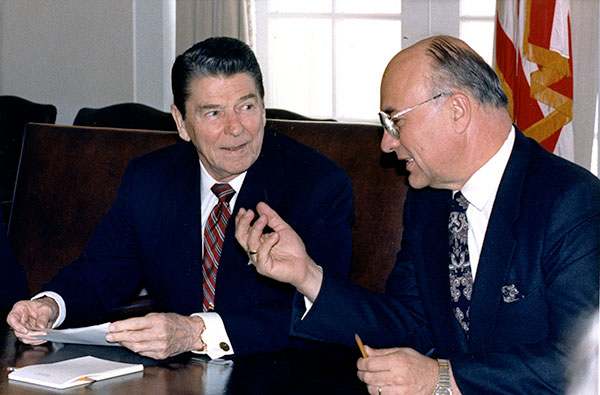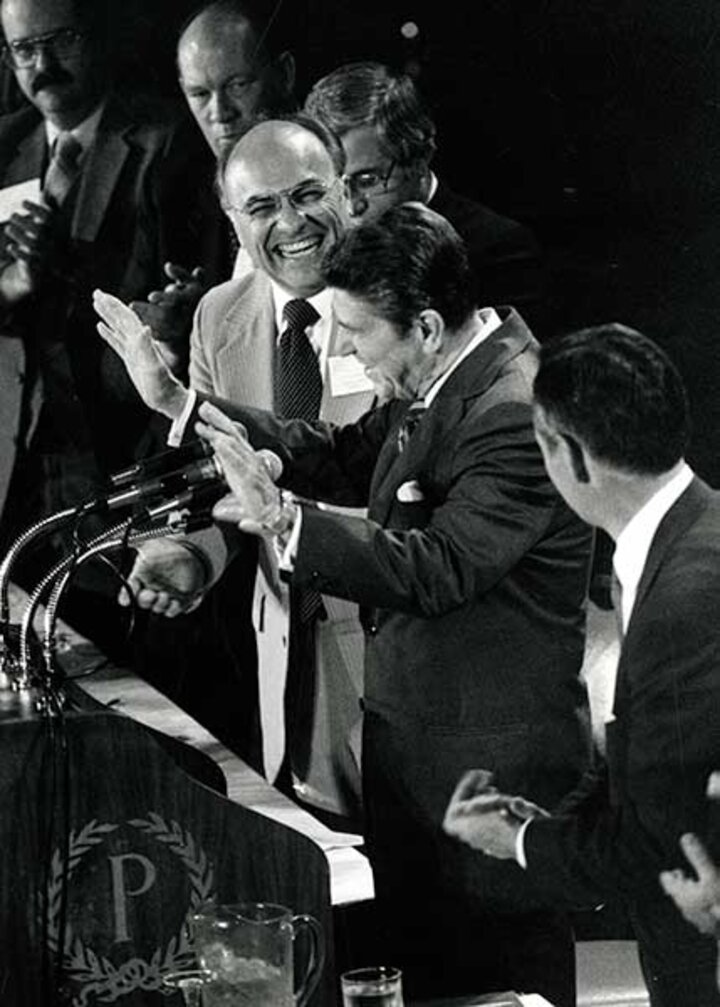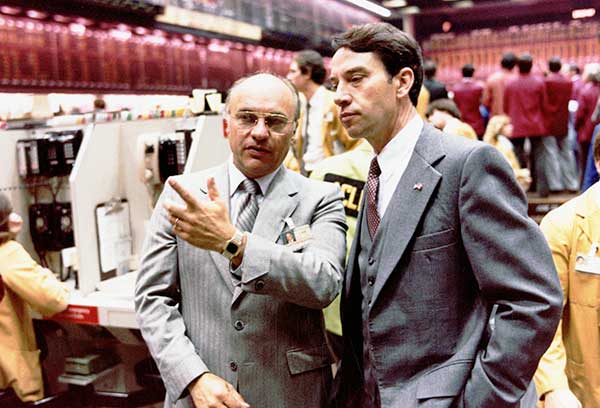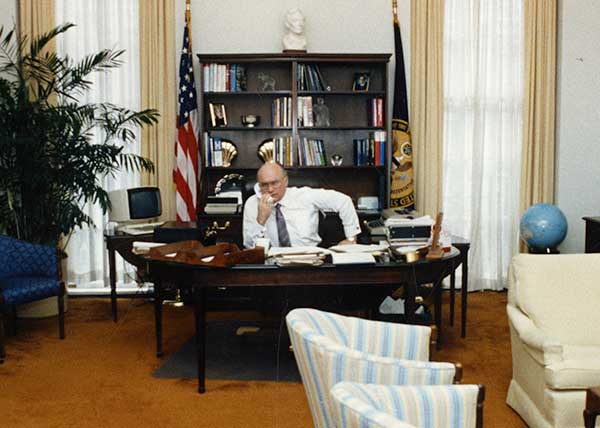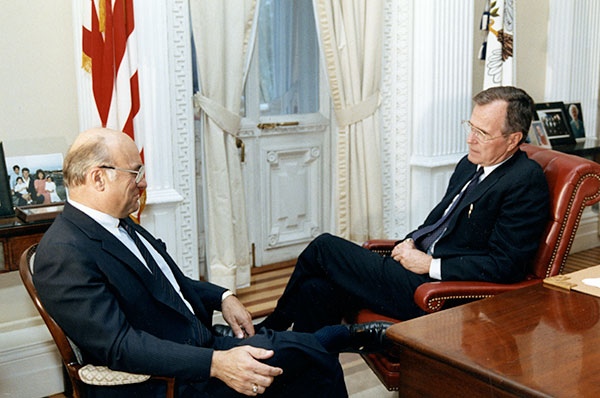At the Clayton Yeutter Institute of International Trade and Finance, we connect academic disciplines related to law, policy, business and agriculture to prepare students for leadership roles in international trade and finance, support interdisciplinary research and increase public understanding of these issues. Named for the renowned trade expert Clayton Yeutter—a Nebraska alumnus and former U.S. Trade Representative and Agriculture Secretary—the Yeutter Institute is a community focused on understanding and adapting to our global world.
For a brief history of the Yeutter Institute, visit our key dates.
To learn about the leadership team, faculty fellows, and advisory council at the Institute visit Our People, and sign up for our newsletter to stay in touch.
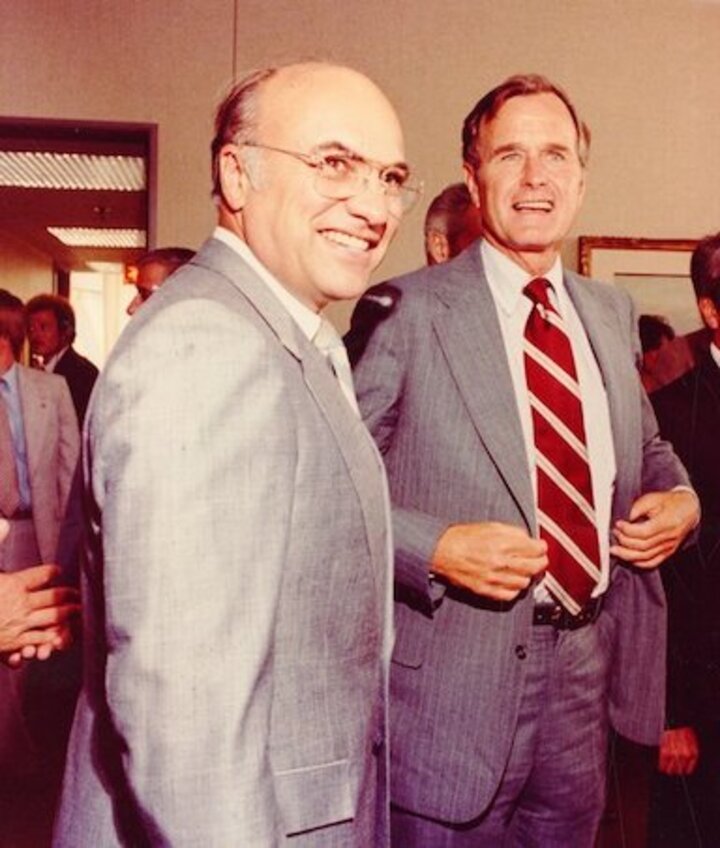
"the world is changing more rapidly than ever before, and you are going to have to adjust to that…if you are prepared to be broad and creative and global in your thinking, you should have a very productive and rewarding career indeed."
- Clayton Yeutter, 1989
About Clayton
Clayton Yeutter (1930-2017) was a lifelong learner, farmer, adviser to U.S. presidents, trade negotiator and tireless advocate for U.S. agriculture. He served in the White House in three sub-cabinet posts and in three cabinet or cabinet-level posts: Secretary of Agriculture, U.S. Trade Representative and Counselor to the President, the only Nebraskan ever to do so. He counted among his friends economic and political leaders around the world, making his enduring mark in opening the world trade system in a way that allowed many countries to thrive. He was particularly honored by Japanese leaders who appreciated his sense of grace even as he pressed them – sometimes forcefully – to open their markets to U.S. semiconductors, beef, and citrus.
Born in Eustis, Nebraska, Yeutter earned his B.S., J.D., and Ph.D. from the University of Nebraska–Lincoln, all with the highest academic honors. In his early years, Yeutter served in the U.S. Air Force, operated his family’s farm in central Nebraska, taught at his alma mater, and made his entrance into public service as a top aide to Nebraska Governor Norbert Tiemann. In 1968, Yeutter led the University of Nebraska Mission in Colombia, a multi-university effort to improve agriculture in the region. The initiative had far-reaching results for the health of the country’s farming sector.
Yeutter’s achievements have had a lasting impact on the world economy. In 1985, Yeutter was appointed as President Ronald Reagan’s U.S. Trade Representative, following a seven-year tenure as President and CEO of the Chicago Mercantile Exchange (1978-85). As USTR, he led negotiations for the historic U.S.-Canada Free Trade Agreement (1988) that became the basis for the North American Free Trade Agreement, now the US-Mexico-Canada Agreement. Yeutter was a leader in advocating for open markets, setting an example for the rest of the world with what was the most important bilateral negotiation the country had ever had at that time. Countering those who doubted the agreement would be passed, Yeutter responded with his characteristic grit,
"Worthwhile things are usually difficult to achieve, but we ought to go about doing it. And, we ought to have the intensity of commitment to bring it about, and I am convinced that we can do so."
Yeutter led the effort to launch the Uruguay Round of negotiations that led to the creation of the World Trade Organization (WTO), and is credited for pressing that the WTO would be a system based on rules, setting the precedent for our modern trading system. Upon the election of President George H.W. Bush, Yeutter transitioned from his role as USTR to the appointment of U.S. Secretary of Agriculture (1989-91), where he continued to advocate for loosening restrictions on trade. Yeutter and his team at USDA guided the 1990 farm bill, which moved U.S. farm policy toward greater market orientation, and, coupled with his achievements as USTR, paved the way for an unprecedented expansion of agricultural exports. Following his exit from public service, Yeutter worked at the international law firm Hogan Lovells from 1993 until his retirement in 2015 and sat on the board of directors for numerous corporations.
Yeutter was a strong subscriber to the golden rule. He lifted people as he went along, a believer in treating people well and sharing credit for achievements. He left a lasting mark not only on international trade, but also on the lives of his family, friends, and colleagues. Yeutter often said that impacting the lives of students is the pathway to changing the world. Today, his legacy guides the work of the Clayton Yeutter Institute of International Trade and Finance.
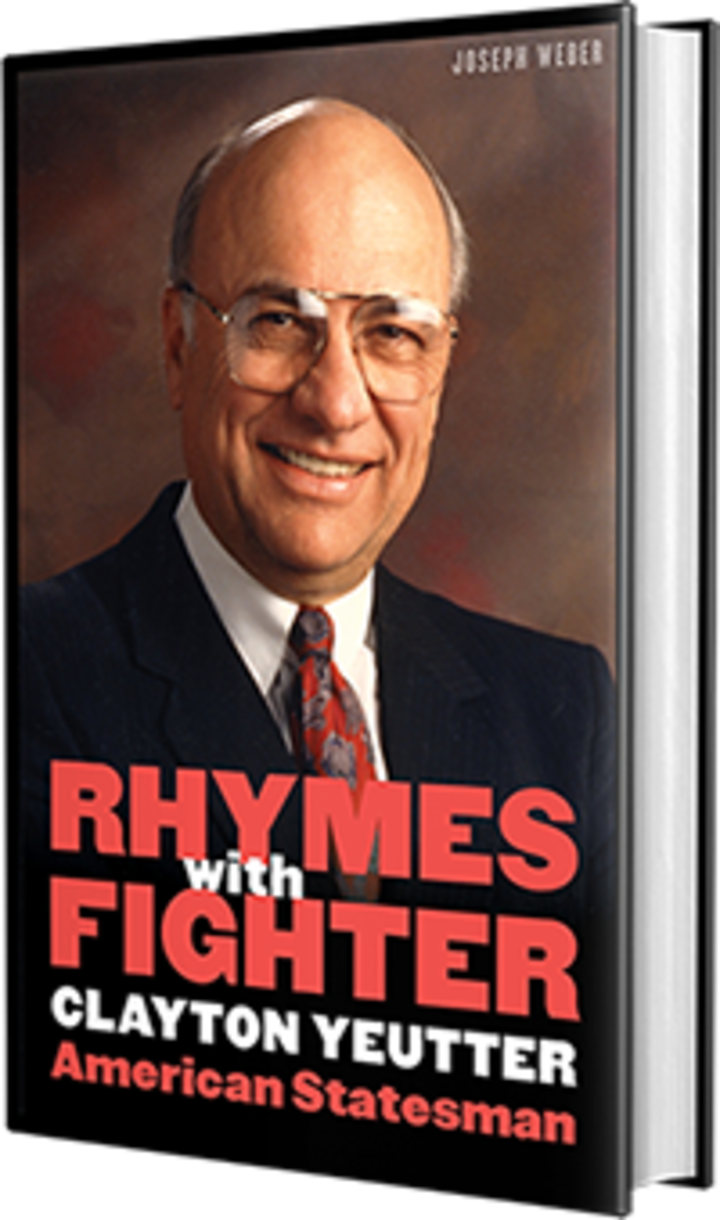
Learn more about the life and legacy of Clayton Yeutter in the new biography
From a hardscrabble childhood in the Great Depression on the dusty plains of rural Nebraska, Clayton Yeutter (1930–2017) rose to work for four U.S. presidents, serving in the cabinets of two of them. His challenge, posed by one of President Ronald Reagan’s aides, was this: go and change the world. As U.S. trade representative he did just that, opening the global trading arena with bold efforts that led to NAFTA, the creation of the World Trade Organization, and extraordinary growth in cross-border business. Today’s global trading regime began with Yeutter.
Historical photos courtesy of the Clayton K. Yeutter, U.S. Secretary of Agriculture Papers, Archives & Special Collections, University of Nebraska-Lincoln.
